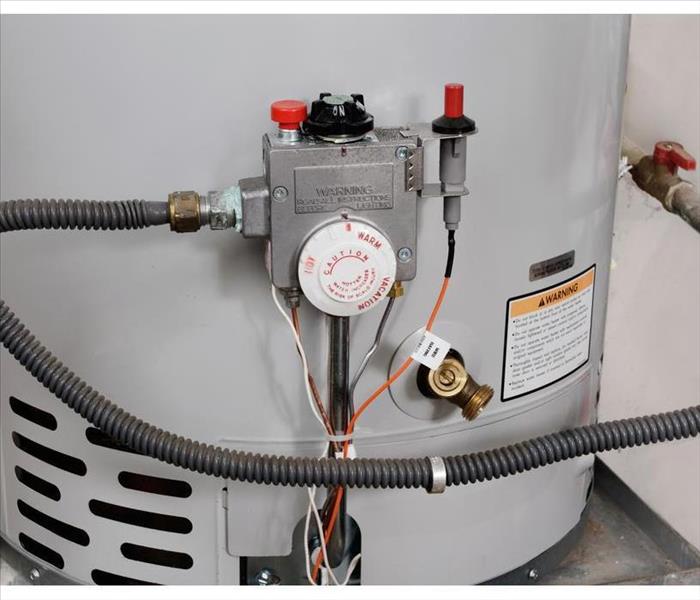Why Your Water Heater is Making Noises
7/30/2022 (Permalink)
Most noises that are made by water heaters come from those that have a tank. If you have a tankless system in Bartlett, IL, it might make a clicking noise when the flow switch starts and stops the flow of water, which is normal. However, if it makes a lot of noise when turning on, there may be too much calcium from hard water. This might indicate the need for a water softener. Other noises could be related to a dirty fan, a leak in the sealed combustion, or a problem with the burner. So, what about noises with a tank water heater?
Types of Water Heater Sounds
Crackling or Popping
Sediment can accumulate around the element tubes and begin making popping sounds as the water is forced through the sediment. If you have an older heater, this is more common. If the sound is more of a rumble, there may be sediment inside the tank which can be fixed with an annual water heater flush and a good cleaning. Similar noises can be made just by the metal tank expanding and contracting, which is normal.
Hammering or Knocking
If you hear a knocking sound inside your walls, this is usually from the pipes heating, especially when water going to and from the tank is turned off abruptly, such as from a dishwasher or toilet. This causes pipes in the walls to move, and while it’s not damaging to your water heater, it could cause wall damage eventually. Water hammer arrestors are made to solve this issue.
Screeching
A screeching or screaming sound usually indicates that water is being forced through a small opening, caused by a slightly closed valve at your water heater or the appliance you’re using, such as a sink.
Tapping or Ticking
This is often a normal sound, caused by the check valves or heat traps in the pipes on top of your heater. These are used to make sure water does not flow in the wrong direction.
Maintaining Your Water Heater
An annual water heater flush is generally the best way to maintain your equipment to ensure it lasts as long as possible while functioning correctly and efficiently. It’s also useful to check the hot water supply lines to all of your sinks once in a while to ensure you won’t be needing any water damage repair out of the blue!



 24/7 Emergency Service
24/7 Emergency Service
